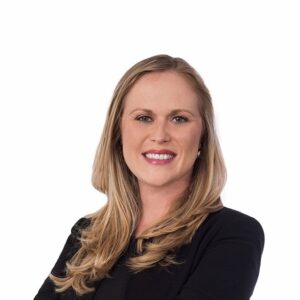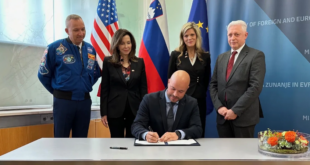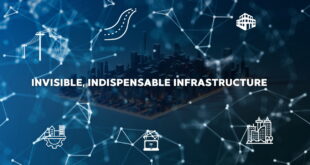By Viktoria Urban

Our Space Café WebTalk “33 minutes with Krystal Azelton – The Urgency Of Ensuring Sustainability in Space” took place on Tuesday, 24th May.
Krystal Azelton is a Director of Space Applications Programs at Secure World Foundation and has over 10 years of international and domestic space, public policy, and management experience. Prior to this, she was a consultant at Access Partnership, and also served as a project manager at the Tauri Group.
Before that, she led and supported the production of NASA’s strategic plans. Her work extended to the full range of NASA’s Earth observation, human exploration, and aviation programs. In that role, she was also recognized as a key member of the data management team that received the NASA Group Achievement Award.
Azelton starts by explaining what sustainability means to the Secure World Foundation: it is the idea of activities that are happening in the space environment that people want to be able to continue doing. Environmental sustainability on Earth is obviously closely tied in with space activities.
“We want to promote solutions that ensure that we have a peaceful, safe, secure and usable space environment for the long term,” she says.
She also states that humans have to act with urgency, meaning that in the past 15-20 years, the Foundation has identified a number of areas where if we don’t start paying attention to, if we don’t think about how the space environment is changing, then that can have serious consequences. As both the technology and the commercialization of space move quickly and there is so much happening in space, we need to make sure that we’re putting in the necessary guardrails to enable continuity.
The real focus, according to Azelton should be on the benefit that humanity receives from space activities, whether it’s from GPS or space exploration, technologies that have been developed out of that, or whether it’s from the actual data that we receive from Earth observation satellites.
“Within space, especially when it comes to applications, we’re only at the beginning: disaster prediction, climate change mitigation, understanding agriculture, our oceans, and human rights monitoring,” she reiterates.
Azelton says that when we talk about ensuring space sustainability, we should not just think about ensuring what we do now and what access and the uses we have at the moment, but space sustainability should stretch into the future. Anyone can be an end user on any level: the person with their cell phone, a health professional, a policymaker, and many others can utilize space data in their jobs and in their lives. For this exact reason, not only experts but everyone should be a part of the conversation, and they need to understand what is happening with regards to space sustainability.
Azelton says that the space community is small, and at the same time, there is siloed thinking within it. This means that people who research certain things focus on that, almost ignoring other facts and aspects that tie into that area. While this thinking could be useful for the research itself, it is not useful when it comes to space sustainability. The community has to overcome this and initiate a public conversation that involves not just the military for example, but also other actors within the government, the commercial industry, and researchers as well.
“I think that we have a lot of advancements happening very, very quickly. And whenever that happens, that means trying to determine what should be regulated, what shouldn’t, what should be done via guidelines and best practice, and how industry should behave. It just takes a while to catch up,” Azelton says.
She claims that there is a risk of greenwashing in the space industry as well but as the space community is pretty outspoken, she does not think anybody would get away with it for too long. Azelton says that the space industry is not doing a very good job of telling its story and so better communication is key to changing the public perception of the industry with space media and social media having a huge role in this. Simply putting out a press release is not enough, the community has to pay attention to how the industry is covered, what is getting out there, what is not getting enough or good coverage.
Azelton says that conferences are helpful in this regard. They enable the exchanging of ideas, sharing data to learn from each other and see what other people are doing. The Secure World Foundation and the UK Space Agency are therefore organising the 4th Summit for Space Sustainability between 22-23 June in London. The aim of the Summit is to raise awareness around space sustainability and breaking through silos.
“We wanted to host an opportunity where people who are very interested in this topic, whether broadly, or more specifically, in one of these specific areas can kind of come together,” she says.
Some of the tough questions will be asked at the event, where the organisers also want to hear from outside experts and young professionals, among others. You can check out the agenda and learn more about the hybrid event here.
To listen to the Space Café WebTalk’s insights, you can watch the full program here:
Viktoria Urban, contributing Editor at SpaceWatch.Global: After graduating as a Journalist from Edinburgh Napier University, I am now doing an Astronomy and Planetary Science degree at The Open University (Scotland) which has enhanced my already existing love and enthusiasm for space. I am also a member of and a volunteer for several societies both in Hungary and in the UK and write online content on space for multiple companies as well. I hope my science communication will encourage many to find a job in the space sector, whatever their background and highlight important issues to ensure a sustainable space environment for future generations.
 SpaceWatch.Global An independent perspective on space
SpaceWatch.Global An independent perspective on space





